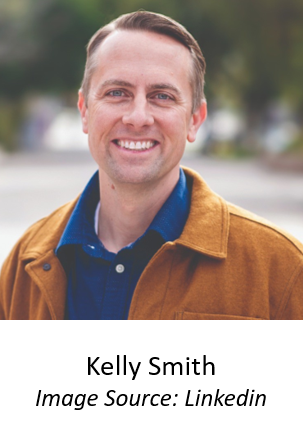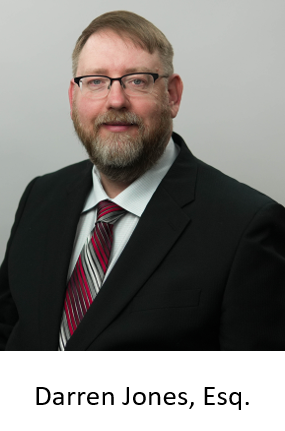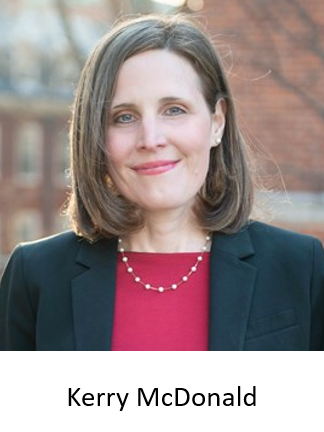Microschooling Flexes its Muscle
In lockstep with the homeschooling boom is growth of the movement known as microschooling, commonly described as education in small learning groups but which some observers characterize as a return to the one-room schoolhouse. While types of microschools vary widely, US News.com described them as “a unique entity, usually registered as an official school and a for-profit business.”
 One example of such a company is called Prenda. Founder Kelly Smith describes it as “providing an effective microschool operating system, a learning model that puts the child at the center, and an inspiring and supportive community.” Prenda means “gift” in Portuguese and is akin to the Spanish word “aprender” meaning “to learn,” forming the message that “learning is a gift.” The organization instructs would-be education “guides” on how microschools work and what parents, teachers, or professionals from different walks of life need to know to start their own microschools. Prenda provides learning “modes” that can vary from rigorous academics to more creative and/or social development.
One example of such a company is called Prenda. Founder Kelly Smith describes it as “providing an effective microschool operating system, a learning model that puts the child at the center, and an inspiring and supportive community.” Prenda means “gift” in Portuguese and is akin to the Spanish word “aprender” meaning “to learn,” forming the message that “learning is a gift.” The organization instructs would-be education “guides” on how microschools work and what parents, teachers, or professionals from different walks of life need to know to start their own microschools. Prenda provides learning “modes” that can vary from rigorous academics to more creative and/or social development.
Founder Smith was inspired to start Prenda after he volunteered to teach an after-school class in computer programming at his local public library. As he describes on Prenda’s website: “Soon, the library was packed with kids working on coding projects they were truly interested in — collaborating, solving problems, and having a blast. [The] Prenda Code Club spread from library to library all over the country.”
Essentially, microschools offer individualized learning plans for students, and they often combine multiple age groups. Some “guides” are professional educators; others are not. Some microschools are Christianity-based; many are secular. They can be set up in private homes, church basements, or in rented spaces in storefronts. As U.S. News.com observed: “There are microschools for every grade level from kindergarten through high school.” There are even micro colleges such as the Micro Bard College.
Aside from criticism by the teachers’ unions, colleges of education, and other purveyors of top-down control and leftist indoctrination, some conservatives have also expressed concerns about microschools. The Homeschool Legal Defense Association’s Senior Counsel and Director of Group Services, Darren Jones, told The Washington Post: “In some states, these [microschool] arrangements may not even be legal, because home-school parents are required to deliver all or most of the education themselves.... Only three states explicitly allow for learning pods in state law. Elsewhere, ‘it’s a fuzzy area.’”
But for working parents, microschools can be a godsend. KaiPod Learning Pods, for example, which operate in 16 states, provide a hybrid educational opportunity whereby students learn online both at home and at in-person “learning centers.” KaiPod offers “programs, teaching support, and enrichment activities,” including sports, crafts, cooking lessons, and more.
KaiPod offers “programs, teaching support, and enrichment activities,” including sports, crafts, cooking lessons, and more.
KaiPod founder Amar Kumar says his educational model allows students to work independently in a communal setting with “independent-minded [adult] educators and entrepreneurs” who guide them through their online courses. The website assures visitors that KaiPod recruits “the highest-caliber educators and provides them with the support and expertise they need to take their dream of running a microschool and convert it into reality.”
Microschools appeal not only to parents who object to government school curricula, but also to parents of children who are bullied, who attend government schools with chaotic classroom situations including disruptive students, and to those whose children simply feel “left out” and isolated.
One single working mother of four told The Post that she “needed to do something radically different” with her children when she could not get help with the three who she said have disabilities. Her 12-year-old twins now attend a Prenda-affiliated microschool in New Hampshire run by a registered nurse turned educator, whose students learn online with her oversight and assistance. Since this mother could not school her children at home, she found a learning pod for one child and a virtual school for another, in addition to microschooling her twins. She told The Post of the opportunity: “It fell from heaven.”
Microschool funding
Microschool parents pay tuition in diverse amounts--- Prenda student fees, for example, are set an annual rate of $2,199 for 1st-8th grade students (billed at $549.75 quarterly) and $1,499 for kindergarten students (billed at $374.75 quarterly). Other microschools may charge much more or much less, but both microschooling families and the schools they attend can benefit from a variety of funding sources.
As of November 2023, 13 states have Education Savings Account (ESA) programs in place, including Arizona, Arkansas, Florida, Indiana, Iowa, Mississippi, Montana, New Hampshire, North Carolina, South Carolina, and Tennessee. Families receive financial assistance and the microschools benefit from students whose families can subsequently afford the fees. About half of all current ESA programs are restricted to lower-income families, but all allow parents to use the funds to pay for education-related expenses, including those associated with homeschooling and microschools.
According to Omella.com, an online platform that helps microschool owners simplify their payment and forms processes, financial help with starting and maintaining a microschool are also available through various public and private entities. Potential funding may include grants from foundations that “are specifically designed to support innovative educational models like microschools,” crowdfunding platforms such as “Kickstarter or GoFundMe,” where founders can pitch their educational approaches and missions, and local and regional education initiatives. The website also mentions government grants, community contributions, corporate giving such as corporate social responsibility programs, and venture philanthropy.
One such funding initiative is the Yass Prize, which grew out of the pandemic era, offering an initial $1 million award “to honor and advance the work of education providers who delivered a best-in-class experience during the Covid pandemic.” Today, it’s a rapidly growing effort known as the Yass Prize for Sustainable, Transformational, Outstanding and Permissionless (STOP) education, meaning that it promotes school choice by having public education dollars follow the student, and that it advocates for sustainable revenue streams through the sale of products and services and/or partnering with others “to support students so they do not have to rely on gifting.”
The Yass Prize celebrates education freedom and rewards organizations and states that offer families “the ability to use their state education dollars to make all educational decisions for their children.”
Support for microschools
While there may be legitimate reasons for caution regarding microschools, the movement has definitely found a niche. One supporter of the effort is the Atlanta-based Foundation for Economic Education (FEE). In a new article on Fee.org, senior education fellow Kerry McDonald observes that “those who favor top-down control of education feel anxious about this bottom-up education transformation,” a nervousness that she and her organization believe “is occurring on both ends of the political spectrum.”
 Be that as may, there is some justification for FEE’s perspective, which opposes top-down control of education and insists we must have “a faith in free people.” As The Post analysis on homeschooling shows, FEE correctly asserts that education freedom “is becoming a greater reality for many families, particularly as more states introduce or expand education choice programs that enable families to access a portion of state-allocated education funding to use toward tuition at private schools, microschools ... and various homeschool programs....”
Be that as may, there is some justification for FEE’s perspective, which opposes top-down control of education and insists we must have “a faith in free people.” As The Post analysis on homeschooling shows, FEE correctly asserts that education freedom “is becoming a greater reality for many families, particularly as more states introduce or expand education choice programs that enable families to access a portion of state-allocated education funding to use toward tuition at private schools, microschools ... and various homeschool programs....”
In September, McDonald visited microschools and learning pods in the Kansas City, Missouri-Kansas area, where a Heartland Hybrid & Microschools Summit was held that same month, sponsored by the Kansas Policy Institute.
“Of the seven learning environments I visited in Kansas and Missouri,” McDonald says, “all of them were founded within the past two to three years, and all of the founders are former public-school teachers who quit and created these alternative programs.”
She identified one of the microschool founders as Matt Barnard, who taught in Kansas City-area public schools for 28 years and launched Refine KC in August 2022 with 15 K-12 students. It has now grown to 40 students and 6 teachers.
Refine KC is a full-time, faith-focused microschool located in the leased space of a local church. The $6,000 annual per student price tag is mitigated for at least half the families through fundraising efforts and scholarships. “Like many microschools and similar learning models across the country,” McDonald explains, “Refine KC is a recipient of a VELA Education Fund microgrant.”
The VELA Fund states on its website that it supports “everyday entrepreneurs,” accelerates the “adoption” of education models that “redefine how, when, and where learning takes place,” and increases awareness to make it easier for all families “to access options that best reflect their values.”
McDonald adds that Barnard’s own children “also attend the program, which emphasizes a highly individualized learning approach tailored to the needs of each child.”
Teachers jumping ship
The government school teachers McDonald met are hardly the only ones taking issue with today’s educational environment. On October 29, Fox News reported that teachers all over the country are sounding the alarm about the current state of education in the U.S., protesting for example that students are being pushed to the next grade when they cannot meet basic academic standards.
Atlanta teacher Marquis Bryant stated on TikTok in a post which has since gone viral: “[I’ve] never seen anything like it. I don’t know why they’re not stressing to ya’ll how bad it is. I teach seventh grade—they are still performing on a fourth-grade level.”
Bryant added that many students in his class are “well behind where they should be,” unable to do basic math such as “adding, subtracting, multiplying and dividing.”
Another teacher also complained on TikTok that “her students fail to properly read, decode, have no vocabulary and no background knowledge.”
Some teachers are leaving the government schools for alternative education ventures such as microschool development. According to FEE’s McDonald: “Entrepreneurial parents and teachers everywhere are creating individualized, accessible, and highly creative learning environments in big and small communities across the U.S. If there’s not one near you, build it!”
Want to be notified of new
Education Reporter content?
Your information will NOT be sold or shared and will ONLY be used to notify you of new content.
Click Here
Return to Home Page
